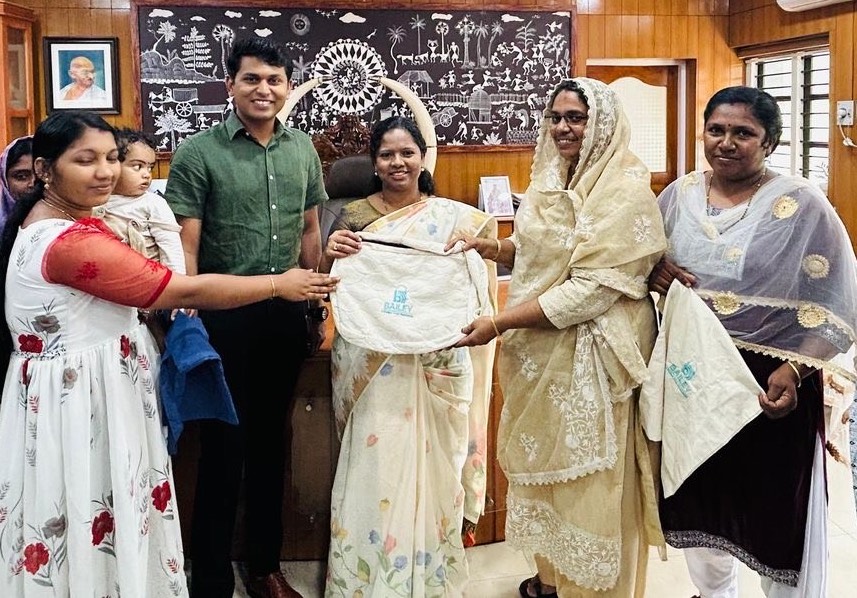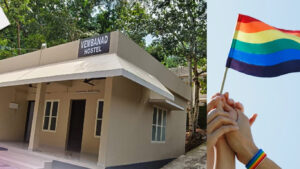A group of 30 resilient women of Chooralmala in Wayanad, Kerala, where memories of a devastating landslide that claimed over 298 lives still linger, are rewriting their destiny to fight back into their lives.
Thanks to a small but impactful initiative led by Wayanad District Collector Meghashree D R, the women who lost everything in the disaster are finding their feet through a micro-enterprise.
Having lost their homes, loved ones, and livelihoods, these women upcycle used textiles and paper to craft eco-friendly bags under the brand name “Bailey Bags.”
The project, supported by District Industrial Centre, Kudumbashree, Kalpetta Block Panchayat, and MS Swaminathan Research Foundation (MSSRF), is more than just a source of income. For these women, it is a powerful step towards healing emotional wounds and reclaiming dignity.
“These women have shown incredible strength. What started as a small initiative is now a model of community resilience and sustainable living,” said Collector Meghashree.
Under her leadership, the district administration provided infrastructure, training, and market linkages to help the women establish their own cooperative enterprise.
Using discarded textiles and paper, the women produce a wide range of eco-friendly bags under the brand Bailey Bags—a name that pays tribute to the Indian Army, whose Bailey Bridge reconnected the region, facilitating relief and rehabilitation efforts following the natural disaster on July 30, 2024.

The initiative promotes both women empowerment and environmental responsibility, making it a unique and socially relevant venture. The bags, which include travel bags and shopping bags, are gaining popularity in local markets and Kudumbashree networks. The team is also exploring opportunities to sell through online platforms and state exhibitions.
Major General V T Mathew, General Officer Commanding, in an official letter to the District Collector, lauded the initiative as a true testament to the grit and determination of the survivors of the disaster.
As part of the initiative, the women underwent a structured 10-day training program on bag-making techniques, upcycling used textiles and sarees, and entrepreneurial skills, including business management, bookkeeping, and operations. “This is a powerful example of how collective resilience and institutional support can rebuild lives. It is a movement of resilience, sustainability, and empowerment,” she said.
With over 5,000 orders fulfilled so far, the district administration is planning to expand the operations of the unit through product diversification, integration with e-commerce platforms to enhance market reach, and advanced training programs to refine skills and introduce new product lines.





